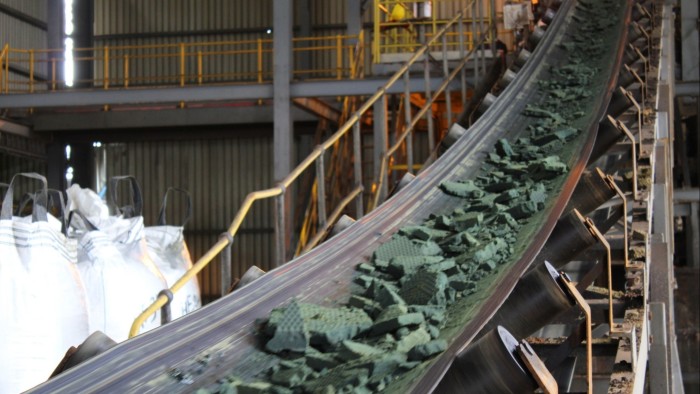Unlock the Editor’s Digest for free
Roula Khalaf, Editor of the FT, selects her favourite stories in this weekly newsletter.
The Democratic Republic of Congo has announced it is halting exports of cobalt, a key ingredient in electric vehicle batteries, in an effort to stop the prolonged slide in prices that has gripped the industry.
All cobalt exports will be suspended for the next four months to deal with the “overabundance of supply on the international market”, according to a statement on Monday from the Strategic Mineral Substances Market Regulation and Control Authority, known as Arecoms.
The move, if fully enforced, would be the most dramatic action taken to stabilise the depressed cobalt market by the DR Congo, which is the world’s largest producer.
“It has come as quite a shock for all the miners we have been talking to,” said Rob Searle, analyst at Fastmarkets. The DR Congo’s decision to suspend exports would likely mean the large inventories of cobalt that have built up in China would start to be drawn down, he added.
Benchmark prices for standard-grade cobalt have fallen to $9.5 a pound — their lowest levels in a century in real terms — according to Fastmarkets, the pricing agency.
Cobalt is produced as a byproduct of copper, and as copper output in the DR Congo has risen, cobalt production has soared as well, pushing down global cobalt prices.
Several cobalt traders said the ban was not being enforced at the border, and questioned how stringently it would be implemented.
Government spokesperson Patrick Muyaya told the Financial Times that Arecoms operates under the authority of the prime minister and that the suspension has the full support of the government.
The measures were approved at a cabinet meeting chaired by President Felix Tshisekedi on February 21, according to official minutes of the meeting.
The biggest producers of cobalt in DR Congo are Chinese-listed CMOC, as well as London-listed Glencore. Previously the country had enforced a nine-month export ban on CMOC during a tax dispute, though that ban was lifted when the dispute was resolved in April 2023.
The new export ban took effect on February 22 and will be reviewed in three months, Arecoms said.
The regulator also said it was implementing tougher rules for the domestic cobalt industry, including prohibiting the mixing of cobalt produced by artisanal miners with the metal from industrial mines.
Thomas Kavanagh, analyst at Argus Media, a pricing agency, said the ban could be a boost for Indonesia, the world’s second-largest producer. “It kind of demonstrates the risks you have with cobalt in the [DR Congo],” he said.
https://www.ft.com/content/1d4f5517-545c-47cb-b9f4-f7c48607919a


